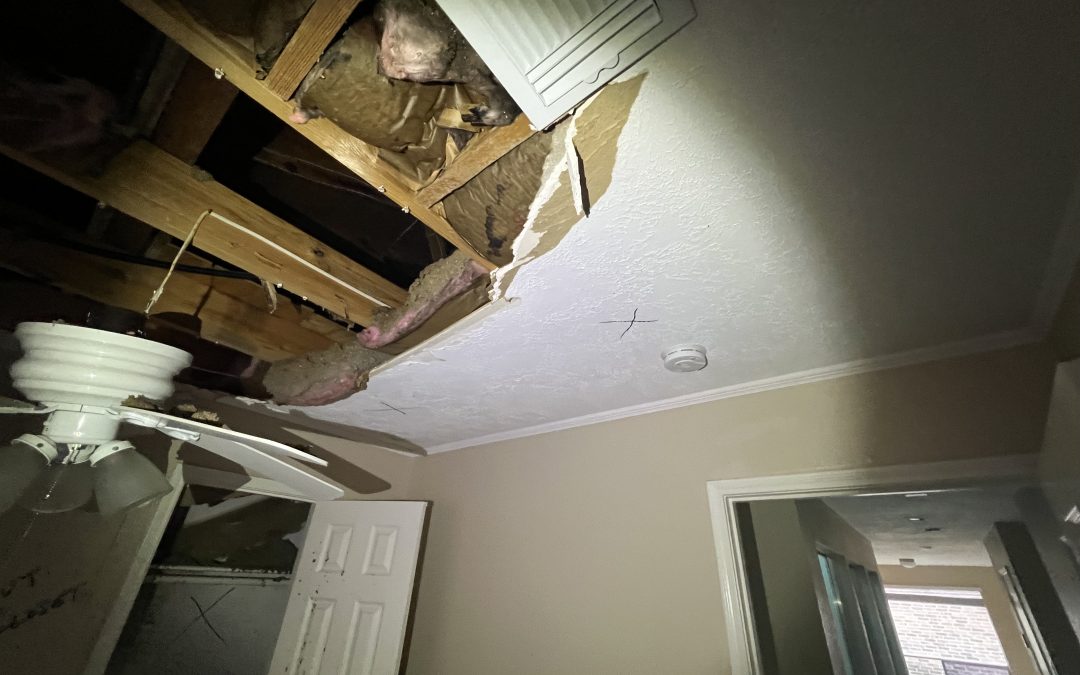When water damage strikes, swift and informed action can be the difference between minor inconveniences and major disruptions. At Total Restoration, we’ve honed our expertise in handling water damage scenarios, and part of our mission is to educate our clients on the dos and don’ts of dealing with such emergencies.
In this blog post, we’ll delve into crucial advice on what not to do after water damage occurs. That way you can navigate these challenging situations effectively.
How Bad Is Water Damage?
While you should not wait on any type of property damage, water damage is especially time-sensitive. If you were to leave water damage alone for a long period, it can lead to many issues such as mold, structural damage, and erosion. If we know you need to do something about this type of damage, what are the things you shouldn’t do? Let’s discuss.
1. Don’t Delay
As we said earlier, time is of the essence when addressing water damage. Delaying cleanup and mitigation efforts can exacerbate the damage. It leads to increased restoration costs and potential health hazards such as mold growth. Act quickly to minimize the impact and swiftly restore your property.
At the same time, this type of damage is not something you should attempt yourself. Attempting extensive cleanup and restoration on your own can be overwhelming and ineffective. Contacting us ensures a thorough assessment of the damage and effective mitigation efforts tailored to your specific situation.
2. Avoid Electrical Hazards
Water and electricity are a hazardous combination. Do not enter areas with standing water if there’s a risk of electrical shock. Safely turn off the power supply to affected areas or seek professional assistance to ensure your safety and prevent further damage.
3. Avoid Spreading Contaminants
When we think about water damage, it is common for us to consider water “clean”. The truth is that water damage often introduces contaminants into your living or working space. This is especially true in a storm damage flooding situation. If you are dealing with a situation like that, it is extremely important to keep the contaminant area as small as possible.
Minimize the spread of contaminants by avoiding unnecessary movement in affected areas. Our team can assess contamination levels and implement appropriate containment measures.
4. Don’t Overlook Hidden Damage
Oftentimes when water damage appears the damaged area is much larger than you initially think. When handling water damage, our goal is to treat all of it, not just the parts you can see. We have had many jobs where we had to rip out a whole wall because of one water stain on the ceiling. Water will travel to the least resistance. Many times, it will migrate into
areas that can go undetected without the proper equipment.
5. Don’t Forget Documentation
The most helpful thing you can do is take as many pictures as possible. Documenting the extent of water damage is crucial for insurance claims and restoration planning. Take photographs or videos before cleanup begins to provide evidence of the damage and facilitate a smoother claims process.
What To Do: Call Us First
As soon as you discover water damage on your property, you should call us. We are prepared to handle these situations, so you don’t have to worry.
Knowing what not to do after water damage is as vital as understanding what actions to take. By avoiding these common mistakes and trusting Total Restoration for professional assistance, you can expedite your recovery process and ensure a thorough restoration of your property. Don’t let water damage overwhelm you—act decisively and seek expert help for a swift and effective solution.
Contact us for more information about water damage restoration!


![9 Signs You Need a Roof Replacement [Infographic]](https://totalrestoration.com/site/wp-content/uploads/2024/07/shutterstock_2254533275.jpg)

![What To Do If You Have Storm Damage [Infographic]](https://totalrestoration.com/site/wp-content/uploads/2024/06/Photo-Jun-22-2023-6-54-23-AM-1080x675.jpg)